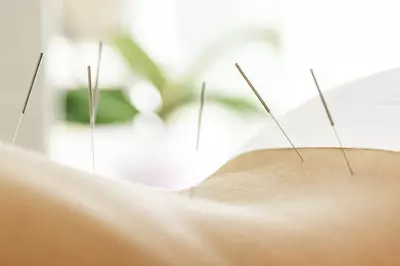Acupuncture and Traditional Chinese Medicine

The Vital Substances
Contributor(s)
Share
 Qi can manifest in material and immaterial ways. The material is associated with yin and the vital substances and the immaterial with yang and the vital energies.
Qi can manifest in material and immaterial ways. The material is associated with yin and the vital substances and the immaterial with yang and the vital energies.
In humans, Qi can manifest both in physical form and in physiological, psychological, and spiritual functions. Individually, TCM refers to these energetic manifestations as "the vital substances." (They include the vital energies of qi and shen.)
Each vital substance is associated with a particular form and function in the body:
- Jing (essence) is the most concentrated and potential form of yin Qi in the body. It is responsible for all growth and development; is associated with the core structures of the body such as bones and visceral organs; and is the energy of sex and reproduction. When the jing-essence is deficient there can be congenital birth defects, mental retardation, poor or weak constitution, delayed or slow development, reproductive difficulties later in life, and a shortened natural life span. TCM does not ever talk about jing-essence being in excess. (Jing is pronounced to rhyme with sing.)
- Xue (blood) nourishes and refreshes the body and mind. It is considered relatively yin. When xue-blood is deficient there is listlessness, fatigue, emaciation, dryness of skin and hair, poor memory and difficulty concentrating, mental restlessness and insomnia. When xue-blood is in excess, it pools and stagnates, causing stasis. This stasis leads to obstruction and severe pain, such as in trauma and thrombosis. (Note that xue in excess does not literally mean that there is more blood in the body, but that is has stagnated and pooled in one place in the body.) (Xue is pronounced "shway" and rhymes with "stay.")
- Jin ye (fluids) provide moisture and lubrication. They are considered relatively yin. When the jin ye-fluids are in deficiency, there is dryness and a lack of the moisture and lubrication necessary for normal body functioning. When jin-ye fluids are in excess, there is dampness and phlegm, which can obstruct the normal transformation and transporting of Qi. (Jin ye is pronounced "gin yeah.")
- Qi (life force or vitality) refers to specific aspects of the more comprehensive Qi (with a capital letter). Translated as life force or energy, it is responsible for the bodily functions of metabolism, digestion and transformation, warming, containment, strength and movement, and protection from inimical influences. It is considered relatively yang. When qi is deficient there is weakness, fatigue, and hypo-functioning of bodily processes, and there may be such problems as; chronic chilliness and cold limbs, poor digestion and elimination, frequent urination or incontinence, chronic loose stool, prolapse of organs or other body structures, chronic shortness of breath, propensity to easily catching colds and flu and generally weakened resistance to pathogenic factors. When qi is in excess, it can cause stagnation and obstruction. TCM considers stress to be too much energy trying to move at one time.
- Shen (spirit mind) is the most yang aspect of Qi in the body and is the energy of perception, thought, and understanding. It gives us the ability to understand ourselves and relate to others and the world around us. Disharmonies involving the disturbance of the shen might include patterns of insomnia, mental unrest and agitation, anxiety, extremes of emotion or the lack of emotional affect, mental illness, and loss of consciousness. (Shen is pronounced "shun" -rhymes with fun.)